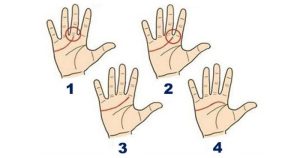Lincolnshire health bosses say that there is a plan in place should new variants of coronavirus enter the county.
‘Operation Eagle’ will include measures such as surge testing and contract tracing to discover where the variant is.
Currently, there are no new coronavirus mutations of concern in Lincolnshire, however the Kent mutation is present and is approximately 70% more transmissible. It is not believed to be more dangerous.
Officials are concerned about a few variants including the South African mutation which spreads quickly and the vaccine may not be able to work against it.
However, there is no evidence it causes more serious illness for the majority of those who come into contact with it either.
Health bosses also said that vaccinations should increase after next week due to current supply issues, and that infection rates will rise in the coming weeks following schools returning.
Professor Derek Ward, Director of Public Health for Lincolnshire County Council said: “We haven’t had any variants of concern, or variants of interest, or not been notified of any. We do have a plan about what we would do if we did.”
“Every area has been asked to draft a version of what they would do using Operation Eagle so we’ve got that, and that’s been discussed with our Lincolnshire Resilience Forum and our local outbreak engagement board with our leaders.”
He added: “If we find a variant of concern in a specific area, we would go in very quickly with a mobilised and quite large part of our workforce to do enhanced testing and contact tracing, so that we can understand where that particular variant has come from.”
Through this, they will try to find the ‘index case’ which is the first person who caught the COVID variant and trace contacts from there.
Professor Ward added that vaccine supply shortages should be back on track soon.
He said: “We have had less vaccines over this week, and it’s likely to last for another week or so, and then vaccine supply issues should loosen, so we’ve not been able to use all of our capacity for vaccination because we simply haven’t had enough of the vaccine.”
This comes as the weekly vaccine data released on Thursday showed 237,027 jabs have taken place between December 8 and February 21 in Lincolnshire — up by 34,228 on the previous week. However, that figure was lower week on week (36,828 last week and 38,365 the week before).
Professor Ward expects infection rates to rise over the next weeks when children go back to school on March 8.
He said: “I expect we will see an increase in our rates and as long as that doesn’t translate into an increase in our hospital admissions and, therefore, increase in deaths. Clearly that’s a trade-off from a medical perspective we need to make.”
In Lincolnshire, asymptomatic rapid lateral flow tests have surpassed 21,000 as of Thursday evening with just over 300 positive cases since rapid testing started in the county.





